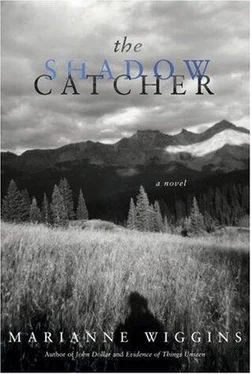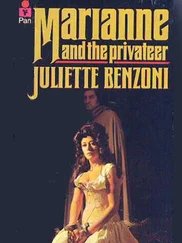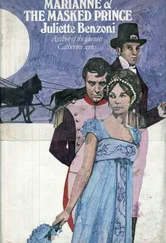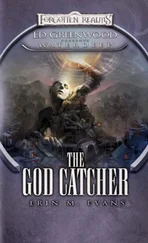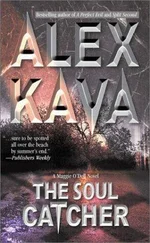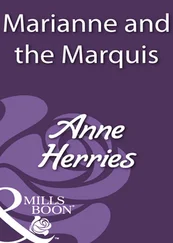Another piece of history slips out from beneath this one — a wallet-size photograph in color, one of those ubiquitous elementary school sittings that rose to popularity in the 1950s. This one’s of a boy, probably eight or ten, all grin, his adult-size teeth too big for his still child-size face, his dress shirt buttoned up to just below his adam’s apple, punctuated by a black bow tie. Across the bottom of the frame, as if to prove its mug shot origins, a black banner with white letters announces, ELKTON ELEM SCHOOL — ELKTON, VIRGINIA.
Next to these two pieces of real evidence, lodged into the gutter of the Book, is a newspaper clipping, the color of toast, folded down the middle, and as I peel it open, carefully, the headline hits me,
BODY OF PENNSYLVANIA MAN
FOUND IN NATIONAL PARK.
Don’t read this, races through my mind, Stop reading this , but my eyes, trained to a page for hours every day, speed over the words that say the body of a Pennsylvania man was discovered in the early morning hours of April 28 in Shenandoah National Park.
The cause of death was apparent suicide.
The body of the man, whose identity has not been revealed, pending notification of the surviving family, was discovered just after dawn yesterday by Mr. Curtis Edwards, a resident of Elkton.
Mr. Edwards, an employee of Pennsylvania Railroad, discovered the body on National Park lands, near the road.
Mr. Edwards, a porter on the transcontinental Pennsylvania Railroad train service, was driving home to surprise his son on his 10th birthday.
“After I called the police, I went back and waited with the body ’til they came,” Mr. Edwards told this paper.
“It seemed like the right thing to do.”
Mr. Edwards and his family live in Elkton.
I guess I’ve sat down on the bed because the next thing I realize Lester is crouching down in front of me asking, “Daughter—? Are you all right?”
I hand him the news clipping and he reads, aloud, all over again, “Body of Pennsylvania man found in national park. The body of a Pennsylvania man was discovered in the early morning hours of April 28 in Shenandoah National Park. The cause of death was apparent suicide.” He seems to read the rest in silence, to himself, before he looks at me. “The ‘Pennsylvania man,’” he says. “— your father ?”
I nod, realizing, late, that he’s laid a healing hand on me.
“Our guy stole my father’s wallet,” I say, my voice sounding, even to me, like a shadow of itself. “—why would he do that? — why would anybody do a thing like that?”
Lester’s face lets me know that given who he is and where he comes from he doesn’t understand why people do the things they do, but that they do them, have done them and will continue to act beyond the range of decent social action and that their choices are a brutal fact of life in these united states and I must learn to live with them.
There will be times — and places — for my outrage, but this isn’t one of them.
“He had a son,” I say and pass the picture of the boy to him. “— has a son,” I correct myself, hoping to suggest that it’s my duty, now, to try to find him.
Lester pats my knee and is about to say something when we hear the screen door slam, accompanied by a blast of angry language — is it Spanish ? — from the living room.
Lester’s on his feet, heading for the source. I hear a rapid, overlapping dialogue in two competing foreignnesses, one voice shouting at Lester in what I now recognize as Mexican Spanish and Lester speaking back in what I can only guess is Navajo.
When I appear before the two of them, still clutching the Bible, the noise arrests. Then, in English, “— who are jou ? — what are jou doin’ in thees house? — where’s Johnny ?”
A tiny woman weighing maybe ninety pounds, dressed in a cotton nightgown and a flannel robe, her hair still bedhead, sits in a motorized wheelchair, shoeless, one foot lividly discolored and the other one replaced by a pink prosthesis.
With one hand she operates the joystick on her wheelchair, caroming back and forth in short, small spurts, threatening Lester with a cane that she wields with her other hand, jabbing at him, repeatedly, in the chest, as he backs up, hands above his head.
“Who are you ?” I ask.
“— jo Mendoza. — jo landlady. — how did jou get in here? — where is Johnny ?”
“Miss Mendoza,” I explain, “My name is Marianne. My companion’s name is Lester…” Lester grabs the butt end of the threatening cane and just stops it. “…and yesterday Johnny…”(I have trouble speaking the false name): “…Johnny entered Lester’s place ofbusiness and had a heart attack.”
Miss Mendoza bites her fist.
“We let ourselves in — Lester, show her the keys—” He does. “—because we…”
“—hees die?”
“No.”
“—hees hokay?”
“He’s in Sunrise Hospital.”
“—I tol’ heem: ‘Johnny, jou nee’ home-cook. Jou nee’ stop eatin’ these fry stuff. Hees, how jou call, high cholo -steeral…”
“Would you like to see him?” Lester interrupts.
Miss Mendoza nods.
“We’ll take you,” Lester tells her.
She looks at me clutching the Bible and asks, “Are jou from church?”
Before I have a chance to answer she wheels around and heads out the door, saying, “I put dress on. Follow me.”
Lester follows her, but I hold back, taking time to reexamine the display of Polaroids.
Ever since my father’s death I’ve rehearsed a single version of how his body was discovered, how he was found, and now I try to re-create how and when that version entered my unchallenged memory.
I think my mother must have told me.
I think Mary must have told the version she remembered from the State Police. A milkman, she had said. A milkman had discovered him on his morning route through Shenandoah National Park, and for years I thought about that milkman in his milk truck on his milk route through the milky morning in the Park and how he must have felt coming on a body of a man hanging from a tree, the horror and the shock of it, and what he did that instant, if he got out of his truck right away or if he prayed and what he told his wife when he got home that night and if he had trouble falling asleep and if the image of my father gave him nightmares.
I had always felt that different waves had radiated outward from my father’s death, one of them capsizing my mother, another overwhelming my sister and myself, still others touching on the lives of those who stood beneath him on that day and had to bring him down.
I think of this each time there is a circumstance that calls for the retrieval of the dead, when crews go through the parishes in the aftermath of Hurricane Katrina, when crews tunnel through remains, encrypted under the twin towers. Once the dead have entered on the world that we inhabit, once they’re here , in front of us, how can we pretend that life and death do not exist in one continuum?
Sometimes I wonder if the milkman quit his job that morning or took a long vacation, moved to another state or went back to work next day as if nothing extra-ordinary had happened.
The degrees of separation between the milkman and myself were too few, and too intense, for me to ever exile him completely from my mind, but now, in light of what the story really was that April morning the milkman version seems a fairy tale and I’m surprised I never asked myself, Who the hell is there to get a milk delivery in a National Park, anyway? You , I almost say out loud, touching my finger to an image of Mr. Edwards in his doorman uniform, you’re the man that I’ve been looking for. And maybe if we’re lucky, you’ll recover from this incident, regain consciousness so we can talk.
Читать дальше
